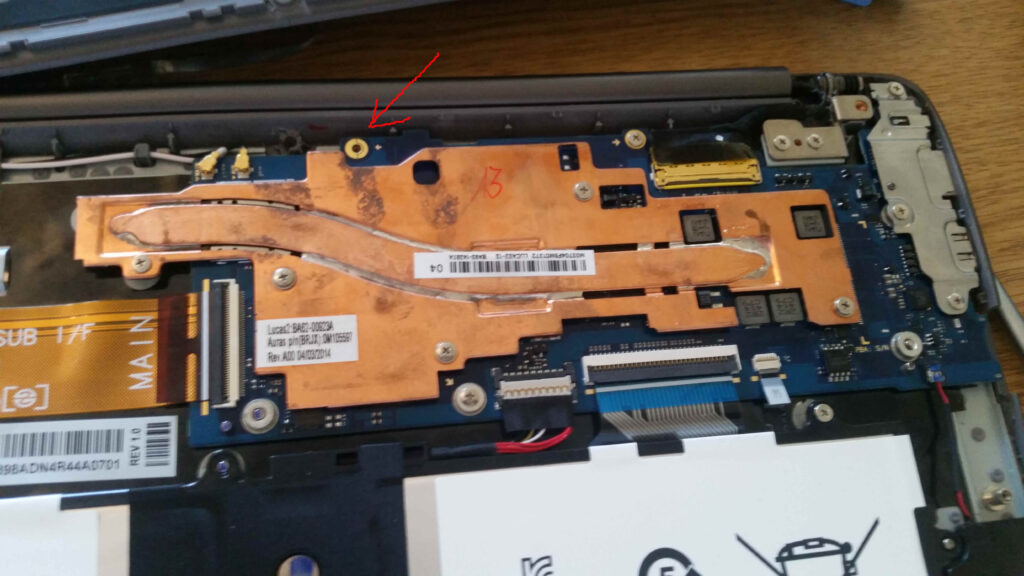A Firefox profile stores all of your important data, such as your bookmarks, history, cookies, and passwords. This article explains how to copy the files to a new profile, lists important files in the profile and describes what information is stored in these files.
Note: Because your preferences and extensions often cause problems, this article does not explain how to copy these between profiles. If you follow the steps in this article, you will have to reinstall your extensions and reconfigure your Firefox preferences.
Table of Contents
Back up your current profile
Before starting it is recommended that you make a complete backup of your existing Firefox profile in case something goes wrong. Please read the Back up and restore information in Firefox profiles article for instructions.
Create a new Firefox profile
Note: This step is not needed if you already have a new Firefox profile, for example, a profile you previously created or a dedicated profile for another Firefox installation.For information on how to create a brand new Firefox profile, please read the Profile Manager – Create, remove or switch Firefox profiles article.
Copying files between profile folders
Important: Firefox must be closed down while copying files between profile folders. Also, Step 1 refers to your “old” profile folder – the profile containing data you want to copy to a new profile. If you can’t open a profile from within Firefox, see Finding your profile without opening Firefox.
- Open your profile folder:
- Click the menu button
 , click Help and select Troubleshooting InformationMore Troubleshooting Information.From the Help menu, select Troubleshooting InformationMore Troubleshooting Information. The Troubleshooting Information tab will open.
, click Help and select Troubleshooting InformationMore Troubleshooting Information.From the Help menu, select Troubleshooting InformationMore Troubleshooting Information. The Troubleshooting Information tab will open. - Under the Application Basics section next to Profile FolderDirectory, click Open FolderShow in FinderOpen Directory. A window will open that contains your profile folder.Your profile folder will open.
Note: If you are unable to open or use Firefox, follow the instructions in Finding your profile without opening Firefox. - Click the Firefox menu
 and select Exit.Click the Firefox menu at the top of the screen and select Quit Firefox.Click the Firefox menu
and select Exit.Click the Firefox menu at the top of the screen and select Quit Firefox.Click the Firefox menu  and select Quit.
and select Quit. - Right-clickHold down the control key while you click on a file you want to copy and choose Copy.
- Open the new Firefox profile folder as explained in step 1, above.
- Right-clickHold down the control key while you click inside the profile folder and choose Paste Item.
Repeat steps 3-5 for each file you wish to transfer over to your new profile folder.
While copying your personal data from an old Firefox profile to a new Firefox profile, it is possible that you could copy over the file that is causing the problem you are trying to get rid of! The more files you copy over, the greater the chance of this happening. It is therefore recommended that:
- You copy over only the minimal amount of files that contain your most important data that you simply can’t live without.
- You copy over a few files at a time, and then check that the problem you are trying to get rid of hasn’t returned.
Note: By default, Windows hides the AppData folder where Firefox stores your profile. To set Windows to show hidden files and folders, see Show hidden files – Windows Help.
Your important data and their files
Bookmarks, Downloads and Browsing History
This file contains all your Firefox bookmarks and lists of files you have downloaded and of websites you have previously visited. For more information, see Bookmarks in Firefox.
This file stores website favicon images. It’s best to also include this file when recovering the places.sqlite file.
Passwords
Your passwords are stored in two different files, both of which are required:
This file stores your key database for your passwords. To transfer saved passwords, you must copy this file along with the following file.
Encrypted information about your saved usernames and passwords.
For more information see Password Manager – Remember, delete and edit logins and passwords in Firefox.
Site-specific preferences
This file stores many of your Firefox permissions that are decided on a per-site basis. For example, it stores which sites are allowed to, or blocked from setting cookies, installing extensions, displaying popups, etc.
Search engines
This file stores user-installed search engines. For more information, see Add or remove a search engine in Firefox.
Personal dictionary
This file stores any custom words you have added to Firefox’s dictionary. If you have never added a custom word to the Firefox dictionary, then you will not have this file. For more information see How do I use the Firefox spell checker?.
Autocomplete history
This file remembers what you have searched for in the Firefox search bar and what information you have entered into forms on websites. For more information see Control whether Firefox automatically fills in forms.
Cookies
Cookies are used by websites for a variety of reasons, some of which include keeping you logged in to a website you have previously logged in to, remembering any preferences a website has allowed you to set, authenticating you as a person who has visited a specific website before, etc.
Security certificate settings
This file stores all your security certificate settings and any SSL certificates you have imported into Firefox.
File types and download actions
This file stores your preferences with respect to what Firefox does when it comes across known file types, such as whether you want to save a file or open it with a specific application. For more information, see Manage file types and download actions in Firefox.
Recovering important data from an old profile
A Firefox profile stores all of your important data, such as your bookmarks, history, cookies, and passwords. This article explains how to copy the files to a new profile, lists important files in the profile and describes what information is stored in these files.
Note: Because your preferences and extensions often cause problems, this article does not explain how to copy these between profiles. If you follow the steps in this article, you will have to reinstall your extensions and reconfigure your Firefox preferences.
Table of Contents
Back up your current profile
Before starting it is recommended that you make a complete backup of your existing Firefox profile in case something goes wrong. Please read the Back up and restore information in Firefox profiles article for instructions.
Create a new Firefox profile
Note: This step is not needed if you already have a new Firefox profile, for example, a profile you previously created or a dedicated profile for another Firefox installation.For information on how to create a brand new Firefox profile, please read the Profile Manager – Create, remove or switch Firefox profiles article.
Copying files between profile folders
Important: Firefox must be closed down while copying files between profile folders. Also, Step 1 refers to your “old” profile folder – the profile containing data you want to copy to a new profile. If you can’t open a profile from within Firefox, see Finding your profile without opening Firefox.
- Open your profile folder:
- Click the menu button
 , click Help and select Troubleshooting InformationMore Troubleshooting Information.From the Help menu, select Troubleshooting InformationMore Troubleshooting Information. The Troubleshooting Information tab will open.
, click Help and select Troubleshooting InformationMore Troubleshooting Information.From the Help menu, select Troubleshooting InformationMore Troubleshooting Information. The Troubleshooting Information tab will open. - Under the Application Basics section next to Profile FolderDirectory, click Open FolderShow in FinderOpen Directory. A window will open that contains your profile folder.Your profile folder will open.
Note: If you are unable to open or use Firefox, follow the instructions in Finding your profile without opening Firefox. - Click the Firefox menu
 and select Exit.Click the Firefox menu at the top of the screen and select Quit Firefox.Click the Firefox menu
and select Exit.Click the Firefox menu at the top of the screen and select Quit Firefox.Click the Firefox menu  and select Quit.
and select Quit. - Right-clickHold down the control key while you click on a file you want to copy and choose Copy.
- Open the new Firefox profile folder as explained in step 1, above.
- Right-clickHold down the control key while you click inside the profile folder and choose Paste Item.
Repeat steps 3-5 for each file you wish to transfer over to your new profile folder.
While copying your personal data from an old Firefox profile to a new Firefox profile, it is possible that you could copy over the file that is causing the problem you are trying to get rid of! The more files you copy over, the greater the chance of this happening. It is therefore recommended that:
- You copy over only the minimal amount of files that contain your most important data that you simply can’t live without.
- You copy over a few files at a time, and then check that the problem you are trying to get rid of hasn’t returned.
Note: By default, Windows hides the AppData folder where Firefox stores your profile. To set Windows to show hidden files and folders, see Show hidden files – Windows Help.
Your important data and their files
Bookmarks, Downloads and Browsing History
This file contains all your Firefox bookmarks and lists of files you have downloaded and of websites you have previously visited. For more information, see Bookmarks in Firefox.
This file stores website favicon images. It’s best to also include this file when recovering the places.sqlite file.
Passwords
Your passwords are stored in two different files, both of which are required:
This file stores your key database for your passwords. To transfer saved passwords, you must copy this file along with the following file.
Encrypted information about your saved usernames and passwords.
For more information see Password Manager – Remember, delete and edit logins and passwords in Firefox.
Site-specific preferences
This file stores many of your Firefox permissions that are decided on a per-site basis. For example, it stores which sites are allowed to, or blocked from setting cookies, installing extensions, displaying popups, etc.
Search engines
This file stores user-installed search engines. For more information, see Add or remove a search engine in Firefox.
Personal dictionary
This file stores any custom words you have added to Firefox’s dictionary. If you have never added a custom word to the Firefox dictionary, then you will not have this file. For more information see How do I use the Firefox spell checker?.
Autocomplete history
This file remembers what you have searched for in the Firefox search bar and what information you have entered into forms on websites. For more information see Control whether Firefox automatically fills in forms.
Cookies
Cookies are used by websites for a variety of reasons, some of which include keeping you logged in to a website you have previously logged in to, remembering any preferences a website has allowed you to set, authenticating you as a person who has visited a specific website before, etc.
Security certificate settings
This file stores all your security certificate settings and any SSL certificates you have imported into Firefox.
File types and download actions
This file stores your preferences with respect to what Firefox does when it comes across known file types, such as whether you want to save a file or open it with a specific application. For more information, see Manage file types and download actions in Firefox.



 , click Help and select Troubleshooting InformationMore Troubleshooting Information.From the Help menu, select Troubleshooting InformationMore Troubleshooting Information. The Troubleshooting Information tab will open.
, click Help and select Troubleshooting InformationMore Troubleshooting Information.From the Help menu, select Troubleshooting InformationMore Troubleshooting Information. The Troubleshooting Information tab will open.